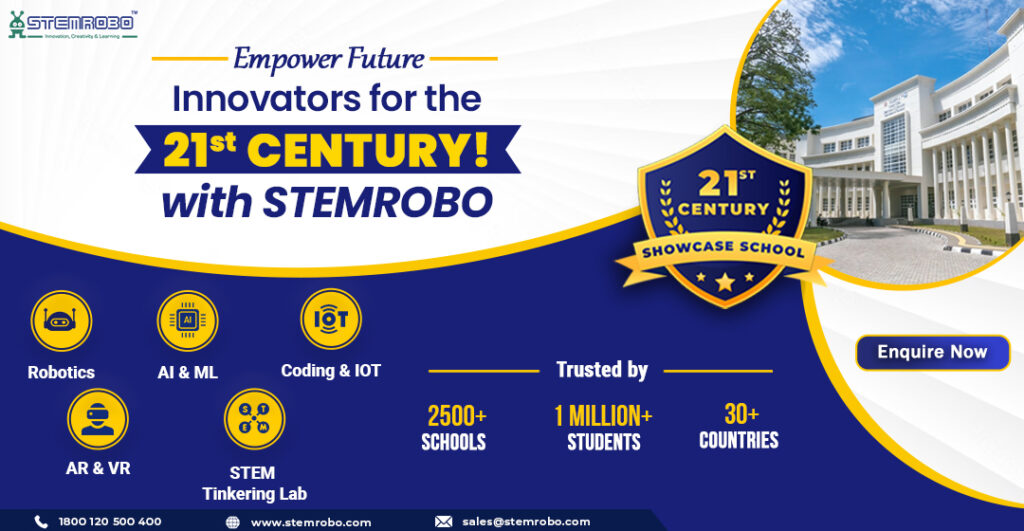Why 21st-century skills are important for K-12 students
Let us understand what 21st-Century skills are, these are termed the 4 C’s that is Communication, Collaboration, Creativity, and critical thinking. Additionally, logical thinking, adaptability, problem-solving, and a global mindset are also considered essential components of these skills. In the rapidly changing world of today, technology is used in everything, from our smartphones to our household machines like washing machines or a toy car. Additionally, technology is used in every industry, including healthcare, education, and electronics manufacturing. So, in this technological world, Students with these 21st-century skills will be in high demand in the future job market. Let’s examine the use of technology specifically in classrooms and the education industry. These days, all our classrooms have smart boards, and we have learning platforms like virtual reality (VR) and augmented reality (AR). These technology tools and platforms help to make education more engaging and productive. The method of teaching students that makes use of these platforms or various labs encourages the development of 21st-century abilities. Students will be able to gain hands-on learning experience through these platforms and labs, where they will also be able to apply their creative thinking to real-world projects and problem-solving. It is very important to learn these technological skills and academic knowledge. These are not just skills for higher students; younger students can also learn them. Learning these skills at an early age can be very beneficial to our children’s development because these skills cannot be acquired by learning in one day, they need a lot of practice. Critical Thinking and Problem-Solving: In a world where change happens quickly, having the capacity to think critically and solve complex problems is essential. Students should be taught to analyze data and come up with creative solutions. Students who develop their critical thinking abilities are better equipped to handle challenges in the real world and make intelligent decisions. Critical thinking is a collection of intellectual abilities that enables people to approach challenges systematically. It helps students become more adept at solving problems and more prepared to deal with the challenges of the working world. Teamwork In the modern workplace, teamwork and efficient communication are highly valued. Students in grades K–12 need to work in various groups, develop their ability to interact with others, and properly communicate their ideas. In the classroom, collaborative projects and activities foster collaboration and prepare students for the cooperative atmosphere of the workplace in the future. Students should be proficient in using these technological tools. Working remotely and collaborating virtually are becoming more common, therefore being able to communicate well on digital platforms is essential. Innovative thinking skills Innovative ideas are driven forward by creativity. Developing creativity in K–12 education helps children develop their capacity for innovative thinking, idea generation, and problem-solving. The ability to think creatively doesn’t just apply to the arts; it may be used in any subject of study and stimulate creativity in the STEM (science, technology, engineering, and mathematics) sectors. Teachers can use creative activities and project-based learning to spark students’ imaginations in K–12 classrooms. Giving students the chance to express themselves and engage in learning enables them to uncover their creative potential. Incorporating creativity into the curriculum also fosters in students a love of learning and a perspective that views challenges as chances for creativity. We have also included modern technologies like VR( Virtual Reality) headsets, LMS (Learning Management System), and other tools that benefit children as well as provide support to teachers, with VR headsets teachers can engage their students in studying and they can also use the LMS platform to create assignments, mark attendance automatically, assign homework, and can also take live sessions and if any students were absent or not able to take live sessions then they can also watch recorded lectures. This makes the work of the teachers easier and gives them more time to finish other necessary tasks or improve the way they teach so that they can educate students more effectively.
Why 21st-century skills are important for K-12 students Read More »





